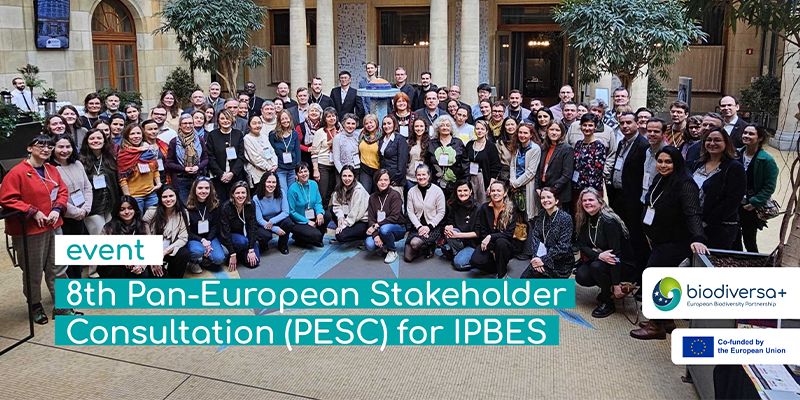The IPBES “Nexus” report has delivered a clear message: the environmental challenges we face are deeply interconnected, demanding integrated solutions that break down traditional silos. The recent 8th Pan-European Stakeholder Consultation (PESC) for IPBES, held in Brussels from 10-13 March 2025, brought this imperative into sharp focus.
Hosted by Biodiversa+, RESPIN, and the ECA Network, the event gathered over 100 stakeholders from Europe and Central Asia. Experts from IPBES and IPCC, national focal points, policymakers, and representatives from initiatives like CO-OP4CBD and IUCN convened to discuss the current landscape and explore ways to strengthen collaboration on biodiversity and climate research across the region.
To achieve its goals, the consultation focused on several key areas. It aimed to empower participants by improving their understanding of IPBES and IPCC processes and sharing best practices for engagement. It also sought to disseminate knowledge by facilitating the uptake of IPBES assessments and IPCC reports. Finally, a core goal was to connect experts and stakeholders to explore potential collaboration on the crucial links between biodiversity and climate.
Navigating complex choices
A highlight of the four-day event was a two-part session organised by the BiodivClim Knowledge Hub on 11 March. Facilitated by Rita Sousa Silva, Sonja Gantioler, Amy Oen, and Tom Wild, these sessions directly addressed the role of Nature-based Solutions (NbS) in tackling the linked crises of biodiversity loss and climate change.
Using a “House of Commons”-style role play, participants debated key motions, revealing differing perceptions among IPBES and IPCC experts about the potential of NbS and the barriers and incentives to their use. This highlighted the importance of bringing diverse perspectives to the table when designing and implementing NbS.
Key takeaways included:
- Biodiversity is fundamental to climate action. Many participants argued that biodiversity underpins all climate solutions and that decarbonisation strategies alone will not succeed without restoring ecosystems.
- Economic incentives play a crucial role. While regulations ensure compliance, financial incentives are essential for widespread NbS adoption and stakeholder commitment. Discussions also highlighted the need to integrate NbS into broader development policies, such as agriculture and rural development policies, and not just economic frameworks.
- Scale matters. Considering both large- and small-scale NbS is important, with large-scale approaches seen as more cost-effective and easier to govern, while small-scale solutions were viewed as more adaptable to local needs.
- Political will is a greater barrier than financial constraints. Many participants believed that if political leadership prioritised NbS, the necessary funding and incentives would follow.
- Both specialised and integrated knowledge are necessary. Expertise alone is not enough. Effective solutions require cross-disciplinary collaboration, societal engagement, and practical implementation strategies.
- NbS need greater recognition even among experts. A surprising takeaway was the limited familiarity with NbS among some experts, highlighting a significant gap in communication and the need to better integrate NbS into environmental policy and practice.
To explore more insights from this event, check out the full report!




